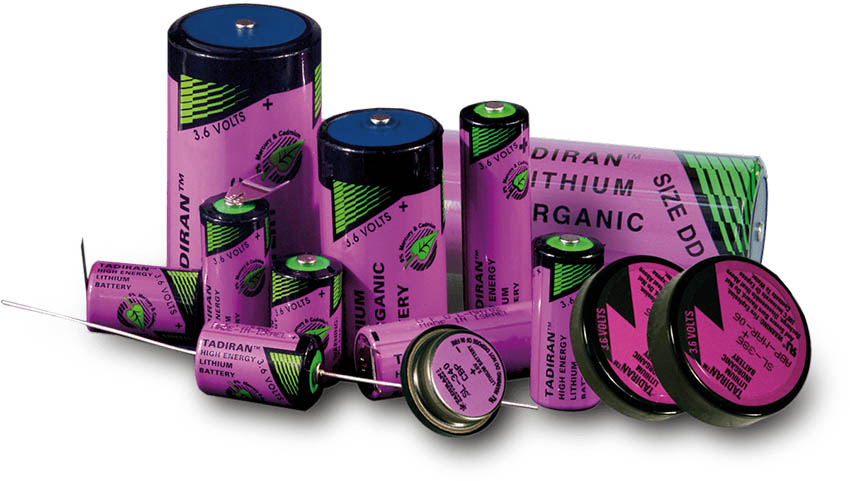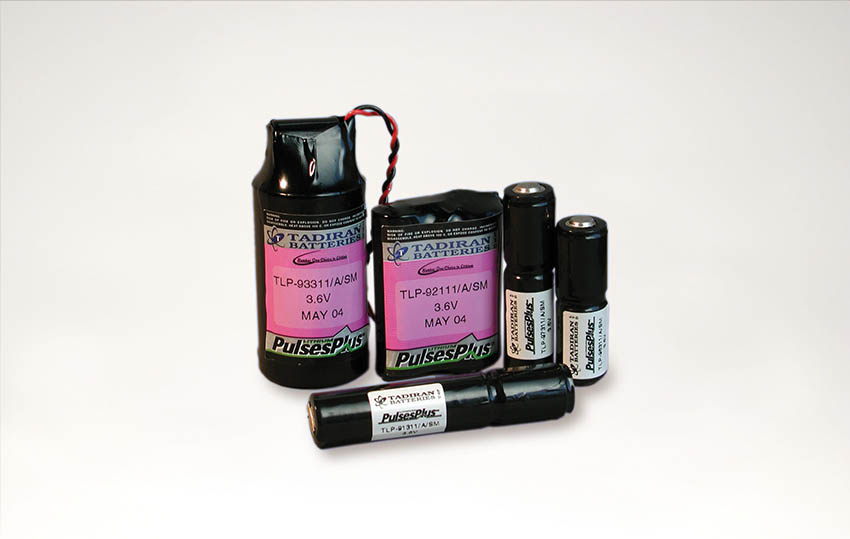The company was founded as a Joint Venture between Tadiran and Sonnenschein in 1984 and – under the name of Sonnenschein Lithium for more than 40 years. A close-meshed sales network has been built up in Europe for this purpose.
Together with its parent company Tadiran Batteries Ltd., the company is continuously improving its performance with regard to products, highest quality and customer service.
Tadiran Batteries Ltd. is fully owned by Saft group. The main focus of the company is to achieve a maximum customer satisfaction. Thus, the guideline is to be the best in design-in, in full technical support and logistics.
The company is committed to the world class philosophy. The management system is certified to ISO 9001 and – since 1999 – to ISO 14001.
Tadiran Batteries employs approx. 120 people and has its production facilities in Buedingen, close to Frankfurt, Germany. They are a leader in the development of lithium batteries for industrial use. Its Lithium Thionyl Chloride (LTC) technology is well established for more than 50 years. Tadiran LTC-Batteries are suitable where a 3.6 Volt high energy primary battery is required for up to 25 years stand alone operation.
The PulsesPlus technology, providing high current pulses in combination with high energy, has been successfully introduced into the market and plays a significant role especially in the asset tracking and metering market segment.
The TLM technology has been developed for applications requiring high power discharge after a long storage time, e.g. as a back-up battery for emergency call devices in automotive telematic systems.
The TLI technology combines all that in a rechargeable solution.

Easy Engineering: What are the main areas of activity of the company?
Tadiran Batteries: The main Market for Tadiran Batteries is Utility metering, mainly smart gas and water meters. But we also supply our energy sources into smart industrial sensors and smoke detectors. Everything that can be counted under IIoT we would say.
Besides that, automotive e-call is a wide field of activity for us.
E.E: What’s the news about new products?
Tadiran Batteries: Recently we launched our new Lith ion based TLM/TLI-1550ES cell offering high power and more energy density even at extreme environmental conditions. These cells are optimized to power next generation e-call applications, medical and military applications and many others. Also, the TLI/TLM HT (high Temperature) series was introduced.
It is one of the first rechargeable lithium-ion cells to withstand an autoclave process.
E.E: What are the ranges of products?
Tadiran Batteries: Primary and Secondary lithium cells for Harsh environmental condition from the coldest arctic temps up to medical sterilization. Offering outstanding durability and performance for decades if needed.
E.E: At what stage is the market where you are currently active?
Tadiran Batteries: All markets we are active in can be considered industrial niche markets. But all are strongly growing. In utility metering many European countries are still in or close before a rollout phase. Industrial internet of things => smart outdoor sensors is a megatrend. Think about traffic, parking or weather monitoring. E-call is mandatory in Europe in every car. Of course, not all of them offer a high quality back up, but more and more.

E.E: What can you tell us about market trends?
Tadiran Batteries: The trend to use wireless devices is strongly continuing. This is asking for more and advanced battery solutions.
Also, to monitor any kind of condition or wear and tear. Here we have to cope with extreme conditions and life times for the battery solution.
E.E: What are the most innovative products marketed?
Tadiran Batteries: Our brand new TLI-1550ES und TLM-1550ES cells are offering the usual Tadiran-like power and durability combined with extended capacity to cope with the latest application demands. Our recently launched TL-1550HT offers a rechargeable cell able to withstand autoclave sterilization processed.
E.E: What estimations do you have for 2023?
Tadiran Batteries: We feel the supply chains are not so much vulnerable any longer and raw material is available again.
Thus, we feel growing demand in all industries and can report increasing sales.

